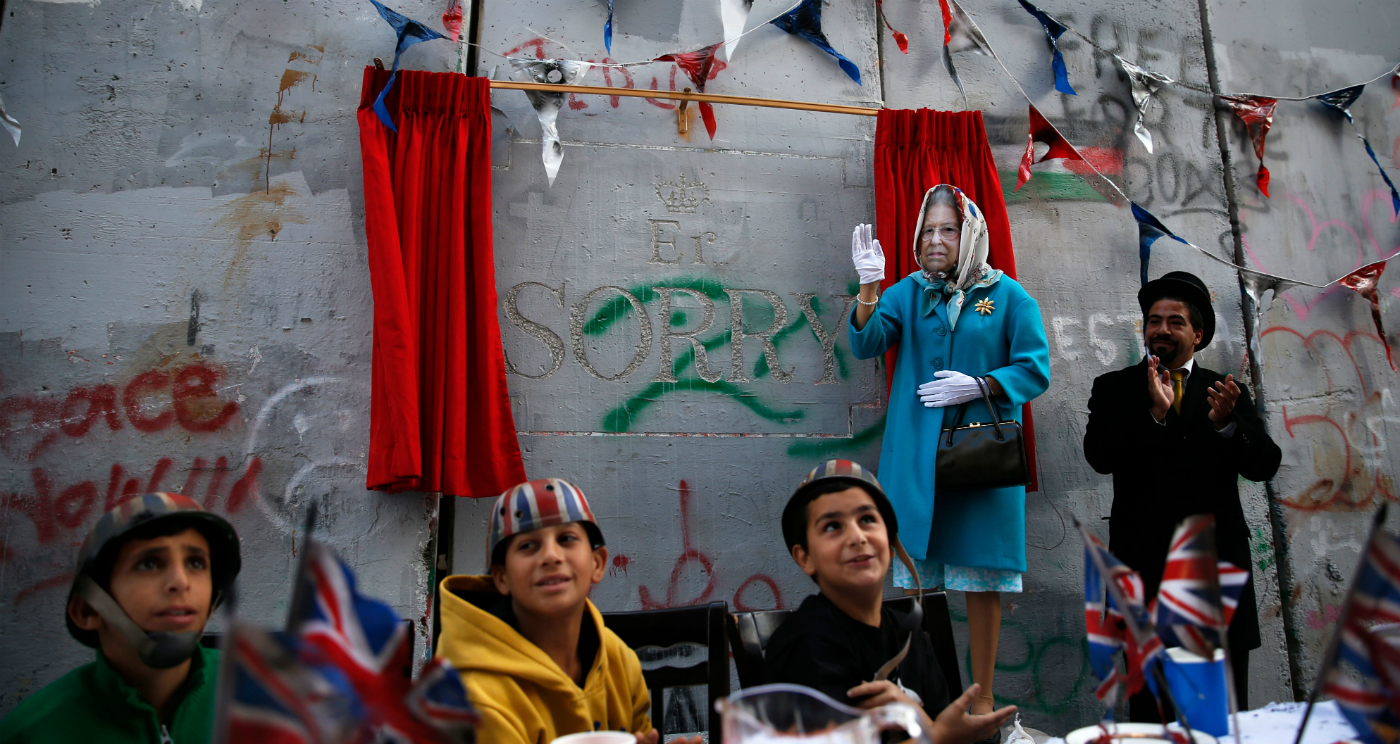Should the UK atone for the Balfour Declaration?
Centenary intensifies calls for British recognition of Palestinian state

A free daily email with the biggest news stories of the day – and the best features from TheWeek.com
You are now subscribed
Your newsletter sign-up was successful
The 100th anniversary of the Balfour Declaration has intensified calls for the UK to atone for its role in creating Israel by recognising the state of Palestine.
The declaration turned the Zionist aim of establishing a Jewish state in Palestine into a reality when Britain pledged to establish “a national home for the Jewish people”, Al Jazeera says.
As Israeli Prime Minister Benjamin Netanyahu headed to London today to celebrate the centenary of the Balfour Declaration, Palestinian Authority President Mahmoud Abbas blamed the UK for Palestinian suffering, saying “celebrations must wait”.
The Week
Escape your echo chamber. Get the facts behind the news, plus analysis from multiple perspectives.

Sign up for The Week's Free Newsletters
From our morning news briefing to a weekly Good News Newsletter, get the best of The Week delivered directly to your inbox.
From our morning news briefing to a weekly Good News Newsletter, get the best of The Week delivered directly to your inbox.
In a comment article for The Guardian today, Abbas warned that the Palestinians will soon embrace a one-state solution and demand rights equal to those of Israeli citizens.
Abbas also called for the UK to atone for the “100 years of suffering” caused by the declaration.
“It is time for the British government to do its part,” he said. “Recognising the state of Palestine on the 1967 border, with East Jerusalem as its capital, can go some way towards fulfilling the political rights of the Palestinian people.”
The Balfour Declaration’s legacy
A free daily email with the biggest news stories of the day – and the best features from TheWeek.com
The pledge is viewed as a catalyst for the ethnic cleansing of Palestine in 1948 and the conflict that followed with the state of Israel.
Israel declared independence in 1948 after the British Mandate expired, and won the subsequent Arab-Israeli War, “prompting significant demographic change in the region and exodus of more than 700,000 Palestinians,” says The Independent.
Israel later captured the West Bank and East Jerusalem in the 1967 war, along with the Gaza Strip - now controlled by Hamas. The last round of Israeli-Palestinian peace talks collapsed in 2014.
What was the Declaration?
One 2 November 1917, Arthur Balfour, the British foreign secretary, wrote to leaders of the UK's Jewish community to pledge support for a “national home” for the Jewish people in Palestine.
The Balfour Declaration formed the basis of the UK's mandate in Palestine, which led to mass Jewish immigration and the creation of Israel following the Second World War.
Why was it controversial?
For Palestinian nationalists, the declaration marked a shift in Western policy that would lead to the displacement of Palestinian people.
The declaration was, in the words of the Palestinian-American academic Edward Said, “made by a European power… about a non-European territory… in a flat disregard of both the presence and wishes of the native majority resident in that territory”.
Should Britain atone for its role?
The official UK response to the demand for a Balfour apology was released earlier this year.
“We are proud of our role in creating the state of Israel,” it said. “Establishing a homeland for the Jewish people in the land to which they had such strong historical and religious ties was the right and moral thing to do, particularly against the background of centuries of persecution.”
But while Britain is generally held responsible for the Balfour Declaration, “it is important to note that the statement would not have been made without prior approval from the other Allied powers during World War I,” says Al Jazeera.
-
 Trump’s fuel blockade puts Cuba in crisis mode
Trump’s fuel blockade puts Cuba in crisis modeIN THE SPOTLIGHT Plummeting tourism, scrambling airlines and rolling blackouts are pushing Cuban society to the brink
-
 ‘The mark’s significance is psychological, if that’
‘The mark’s significance is psychological, if that’Instant Opinion Opinion, comment and editorials of the day
-
 How did ‘wine moms’ become the face of anti-ICE protests?
How did ‘wine moms’ become the face of anti-ICE protests?Today’s Big Question Women lead the resistance to Trump’s deportations
-
 Epstein files topple law CEO, roil UK government
Epstein files topple law CEO, roil UK governmentSpeed Read Peter Mandelson, Britain’s former ambassador to the US, is caught up in the scandal
-
 Iran and US prepare to meet after skirmishes
Iran and US prepare to meet after skirmishesSpeed Read The incident comes amid heightened tensions in the Middle East
-
 Israel retrieves final hostage’s body from Gaza
Israel retrieves final hostage’s body from GazaSpeed Read The 24-year-old police officer was killed during the initial Hamas attack
-
 China’s Xi targets top general in growing purge
China’s Xi targets top general in growing purgeSpeed Read Zhang Youxia is being investigated over ‘grave violations’ of the law
-
 Panama and Canada are negotiating over a crucial copper mine
Panama and Canada are negotiating over a crucial copper mineIn the Spotlight Panama is set to make a final decision on the mine this summer
-
 Why Greenland’s natural resources are nearly impossible to mine
Why Greenland’s natural resources are nearly impossible to mineThe Explainer The country’s natural landscape makes the task extremely difficult
-
 Iran cuts internet as protests escalate
Iran cuts internet as protests escalateSpeed Reada Government buildings across the country have been set on fire
-
 US nabs ‘shadow’ tanker claimed by Russia
US nabs ‘shadow’ tanker claimed by RussiaSpeed Read The ship was one of two vessels seized by the US military